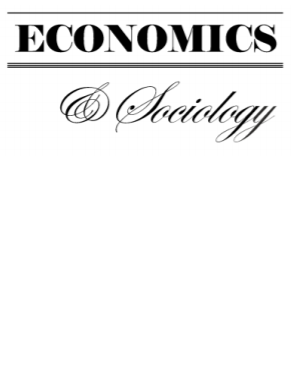Taxes and the incentive to work under flat and progressive tax systems in Slovakia
Taxes and the incentive to work under flat and progressive tax systems in Slovakia
Author(s): Orkhan Nadirov, Bruce Dehning Subject(s): Labor relations, Political economy, Economic development, EU-Approach / EU-Accession / EU-Development, Public Finances
Published by: Fundacja Centrum Badań Socjologicznych
Keywords: flat tax system; progressive tax system; labor-leisure preferences; labor market model; Slovakia;
Summary/Abstract: This study examines the impact of taxes on the incentive to work under flat and progressive tax systems. Of particular interest are the changes from progressive-to-flat and flat-to-progressive tax conditions. To measure the impact of taxes on the incentive to work under both scenarios, we relate hours worked with the effective marginal tax rates. Using national accounts data and the Prescott’s (2004) labor market model, Slovakian work hours were examined at points in time around the adoption of a flat tax system in 2004 and a progressive tax system in 2013. In Slovakia, there was a transition from a progressive to a flat tax system in 2004, followed by a reversion back to a progressive tax system in 2013. Theoretically, the incentive to work increases when a progressive tax structure is replaced with a flat tax, while the incentive to work decreases in the opposite case. However, the findings show that when Slovakia replaced its progressive tax with a flat one, the actual hours worked decreased, contrary to predictions. When the flat tax was abandoned in favor of a progressive tax structure, hours worked also decreased, but less than when the flat tax was introduced, and significantly less than predicted by the model.
Journal: Economics and Sociology
- Issue Year: 14/2021
- Issue No: 2
- Page Range: 40-55
- Page Count: 16
- Language: English

